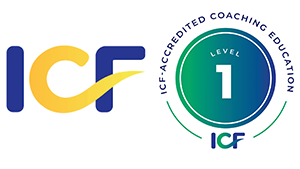This is a comprehensive guide aimed at individuals looking to embark on a career in life coaching or seeking to enhance their personal and professional development through life coaching courses. This blog navigates through the critical aspects of selecting an appropriate course, emphasizing the importance of curriculum content, accreditation, and the expertise of instructors.
Understanding Your Goals Start by clarifying your objectives for taking a life coach course. Are you aiming to become a professional life coach, or are you looking to enhance your personal growth? Your goals will significantly influence the type of course best suited to your needs.
Evaluating the Curriculum A thorough examination of the course curriculum is vital. Look for programs that cover a broad range of topics, including communication skills, coaching methodologies, ethical considerations, and business management for aspiring coaches. The depth and breadth of the curriculum can provide insight into the comprehensiveness of the training.
The Importance of Accreditation Accreditation by a reputable body is a hallmark of quality and reliability. It ensures that the course meets specific standards in coaching education. Accreditation can also impact your eligibility for professional certifications and memberships in coaching organizations.
Instructor Expertise and Experience The experience and qualifications of the instructors are paramount. Seasoned instructors bring valuable insights and practical knowledge to their teaching, enhancing the learning experience. Research the instructors’ backgrounds to ensure they have a solid track record in life coaching.
Interactive and Practical Learning Opportunities Seek out courses that offer practical, hands-on coaching opportunities. Real-life coaching practice, feedback sessions, and interactive assignments are crucial for developing effective coaching skills.
Flexibility and Support Consider the course format and support services. For those balancing multiple responsibilities, flexible online courses with access to extensive resources, mentorship, and community support can be particularly beneficial.
Making Your Decision Armed with this information, compare your shortlisted courses. Consider factors such as cost, duration, learning format, and post-completion support. Choosing the right life coach course is a significant step towards achieving your coaching aspirations, offering a pathway to personal fulfillment and professional success.
By methodically assessing your goals, the curriculum, accreditation, instructor expertise, and the practical aspects of the course, you can make an informed decision that aligns with your aspirations and sets the foundation for a rewarding journey in life coaching









